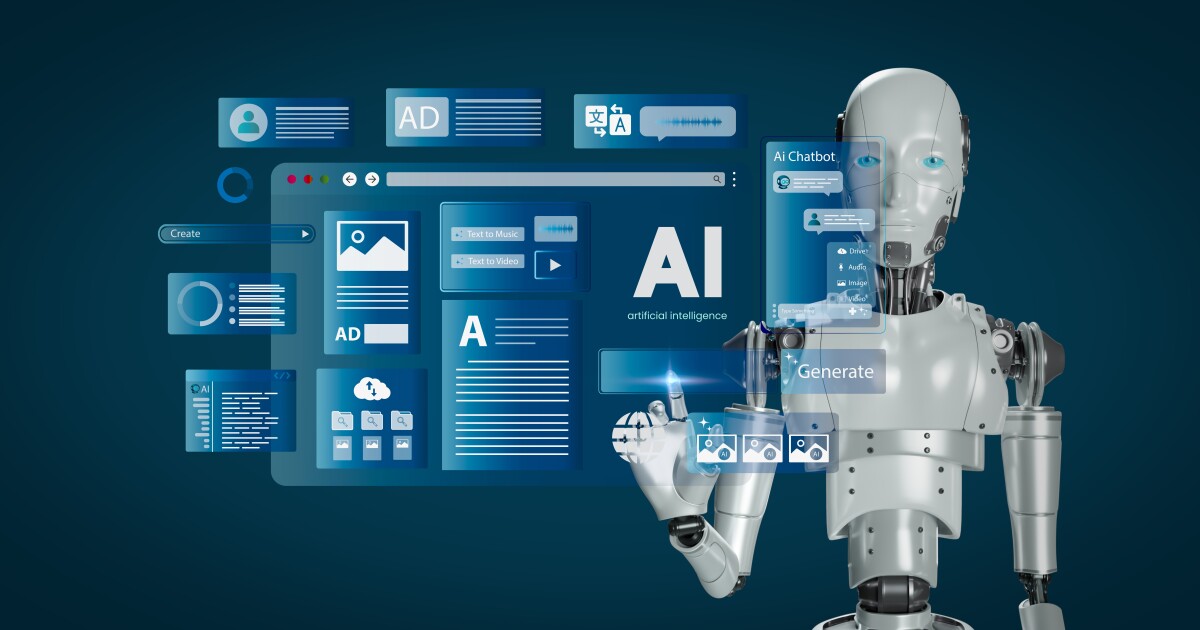Each time a new tool enters the accounting profession, it tends to follow a familiar path.
At first, it is met with skepticism as professionals assess how it will impact their work and the broader profession. Then comes a period of cautious interest, where early adopters curiously explore its potential. Eventually, the tool is gradually accepted as its value to the industry becomes clearer. We’ve seen this pattern play out with spreadsheets, tax software and cloud-based systems. Now, artificial intelligence and automation are representing the next step in that evolution, bringing the same initial uncertainty while holding the power to once again transform the profession for the better.
AI is no longer just a distant concept, as we’re already seeing it reshape day-to-day functions within accounting. From processing data entry, invoice coding, bank reconciliation and tax compliance, tasks that once required hours of manual effort are now increasingly handled by AI. These tasks, while essential, are time-consuming and prone to human error.
With AI, firms can dramatically reduce those risks and speed up processes with greater accuracy. For instance, invoice data can be captured and coded automatically using optical character recognition, while smart bank feeds and rules-based automation can reconcile transactions without the need for manual matching by drastically reducing the time your clients spend on account payables. With the right tools, they can scan invoices, automate approvals and schedule payments in just a few clicks, freeing them up to focus on running their business instead of chasing paperwork.
This automation isn’t just about efficiency, it’s about redefining the accountant’s role, shifting the focus from repetitive, rules-based tasks to higher-value work like data interpretation, client advising and developing financial strategies that drive business growth. As accountants have more time freed up from mundane and time-consuming tasks, they have the opportunity to step more fully into an advisory role, one that’s increasingly in demand as clients more frequently look to their accountants for strategic insights.
Much like the cloud revolution a decade ago, which introduced real-time collaboration, remote work and integrated workflows that made firms more agile, this transition to AI builds on that momentum. It delivers deeper insights and faster decision-making, ultimately transforming not just how accountants work, but what they can offer.
Delivering more value in real time
The most successful firms today are using AI tools not just to save time, but to unlock new areas of value for their clients. Instead of only looking backward with compliance reporting, accountants can now look forward, offering insights into business trends, modeling future scenarios and guiding clients through uncertainty. Accounting software providers are actively investing in AI-driven features to streamline operations and enhance advisory capabilities. AI-powered forecasting tools can analyze cash flow patterns and predict future shortfalls or surpluses, while automated tax planning tools can simulate various scenarios to help clients optimize deductions and minimize surprises come tax season.
This positions accountants not only as financial stewards but as strategic advisors, as AI enables them to shift from reactive to proactive support. As client expectations evolve, so too must the services firms provide. Clients are no longer content with one-time, year-end tax support. They want real-time answers, ongoing guidance and a proactive partner who helps them stay ahead of regulatory, economic or operational changes. Meeting these expectations requires firms to embrace this technology as a tool to deliver deeper value, as opposed to a threat to their business or jobs.
Building client relationships
AI enables firms to deliver on rising client expectations, but it’s the human connection that truly strengthens those relationships. Real-time data analysis tools now allow for more frequent and meaningful check-ins, while automated alerts flag unusual spending patterns or missed payments. However, it’s crucial to remember AI doesn’t replace the client relationship, it enhances it. While AI tools can provide deeper insights in a quicker manner, they can’t replicate the trust and empathy that comes with human relationships. By removing repetitive, time-consuming tasks, accountants gain more time to build trust, answer strategic questions and help clients plan for the future.
That’s why soft skills are more important than ever, as accountants need to have strong communication skills and be critical thinkers and active listeners. They’re the crutch to help clients translate complex financial concepts into relatable language and confidently guide them through major business or financial decisions. Many firms are already investing in training to develop these human-centered capabilities alongside technical expertise because as automation grows, it’s the accountant’s insight, empathy and ability to build lasting relationships that will make the difference.
An opportunity for smaller firms
Smaller firms, in particular, have a lot to gain from the AI shift. With leaner teams and tighter budgets, it can be difficult to match the range of services offered by larger firms. Automation helps level the playing field by enabling smaller practices to take on more work with fewer resources, which can reduce burnout and allow them to expand into new offerings. With the right tools, even a small firm can deliver insights that rival those of much larger competitors.
As firms lean into this shift, it’s critical to keep in mind that AI is only as valuable as the quality of the data it receives. Inaccurate or incomplete information can lead to poor analysis and misguided recommendations. While AI can identify patterns, it can’t explain the underlying causes or context, that responsibility still falls to the accountant. The firms that will thrive during the AI era are the ones that will also build in the oversight, quality control and human insight to use it effectively.
Transforming the accounting journey for firms and clients
Firms also need to consider how to implement these tools thoughtfully. Automation works best when paired with clear processes and staff training. While any firm can implement AI software, it’s crucial to think through how it will evolve how the firm operates based on current limitations, partnerships and
more. This also expands beyond just the mundane tasks discussed earlier, it also has the potential to transform areas such as onboarding, billing, compliance and planning. AI can streamline the entire client journey — but only when it’s integrated with purpose and intent.
These tools don’t just enhance client services, they also create internal efficiencies for accounting firms. AI can help onboard new employees more quickly by standardizing processes and training materials. By automating recurring internal tasks like generating month-end financial packages or drafting client summaries, firms can increase productivity, reduce manual errors and free up time for more strategic, high-value work.
Despite the influx of technology we’ve seen over the past several decades, the core mission of the accounting profession hasn’t entirely changed. It’s still about helping people understand their finances, make informed decisions and plan for what’s next. AI can enhance that mission, but it doesn’t replace it.
Accountants have always adapted: from paper ledgers to spreadsheets to the cloud. AI represents the next chapter of this journey, one that has likely the greatest potential to strengthen the profession and elevate its impact even further.


 Economics1 week ago
Economics1 week ago
 Economics1 week ago
Economics1 week ago
 Finance1 week ago
Finance1 week ago
 Economics5 days ago
Economics5 days ago
 Economics1 week ago
Economics1 week ago
 Blog Post6 days ago
Blog Post6 days ago
 Personal Finance5 days ago
Personal Finance5 days ago
 Personal Finance6 days ago
Personal Finance6 days ago












